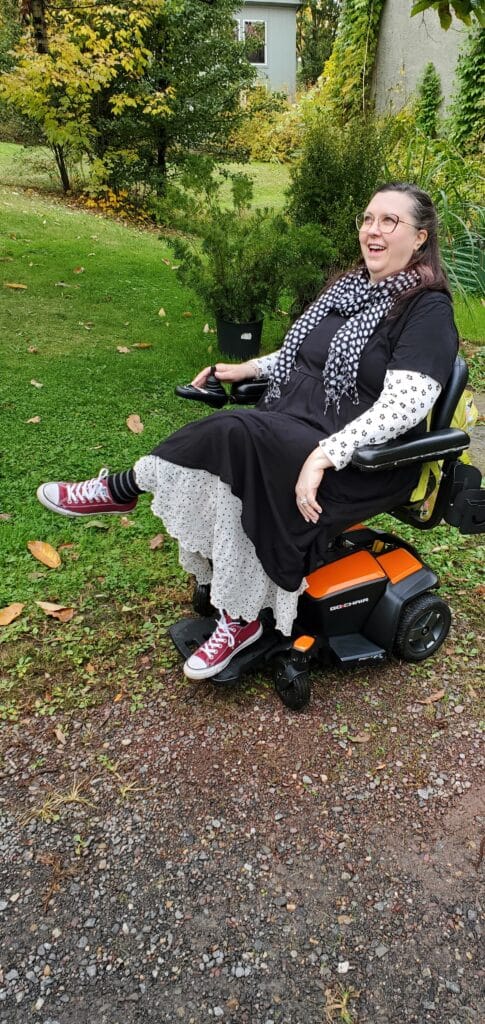The ADA and The Church….It’s Complicated!
Every Sunday, hundreds of UCC pastors, ministers, liturgists, and lay people proclaim that, ‘no matter who you are, or where you are on life’s journey, you are welcome here!’
And they say it from an altar that they probably walked up a few stairs to get to. I have no doubt that in their hearts they mean what they are saying, however, our buildings themselves often speak an entirely different message to everyone who enters into them.
A person with mobility issues sees areas in the church that aren’t accessible to them, and the message they are given is that the space is not “for them,” whether it’s a bathroom, or a classroom, the church kitchen, library, or the chancel and altar. A person who doesn’t have a mobility issue looks at spaces that aren’t accessible and mentally notes that the space is for able-bodied people only. We mostly do this subconsciously – I don’t think that anyone sets out to have an ableist agenda in their church as a matter of intention, but normative ideas run deep in our psyches. The fact remains, that we live in a world where high levels of ability are considered the norm, despite the fact that almost 100% of us will experience some level of disability at some point in our lives.
On March 4th of this year, Judy Heumann, who has been called the “mother of the disability rights movement” suddenly passed away, and those of us in the disability community felt it as a sharp blow. Without her tireless work, we might find that most places in the world were still as inaccessible as many of our churches are. Judy stated it like this:
“Disability only becomes a tragedy when society fails to provide the things we need to lead our lives — job opportunities or barrier-free buildings, for example,” she said. “It is not a tragedy to me that I’m living in a wheelchair.”
The sad fact is, that churches to this day are still exempt from ADA requirements in most ways. And even as a person who uses a wheelchair, who attended seminary…I did not know this, and was not taught this in my degree program. 2023 marks 30 years since the signing of Section 504 of the Americans with Disabilities Act (ADA). With the passing of Judy Heumann, it seems to be an auspicious time to revisit the relationship of the ADA and the Church, and to figure out where we stand. We like to think our church is accessible to everyone who comes in our doors, but maybe they aren’t. So what are some of the issues, and how accessible is your church?
- How accessible would all your church spaces be to a pastor in a wheelchair?
- How accessible is the service you provide to the hearing impaired? To the blind?
- Where would someone in a wheelchair sit in your sanctuary? What would the service look like from there? Do they feel like they are “in the way”?
- Can someone in a wheelchair sing in your choir along with able bodied people? Is the choir space accessible to them?
- Do you ask everyone to “stand”, or use other ableist language? Is the message you deliver one that considers them whole, worthy, strong of faith, and not responsible for their disability?
As people of faith, with a strong commitment to inclusion and belonging, we may find our proclaimed theology can sometimes be a bit out of sync with our reality. We may tell ourselves that we can’t afford to make accommodations, but the truth is that we can’t afford NOT to do these things.
The reason you may not have many disabled folks sitting in your sanctuary, or working in your organization, may be the way your space tells them they are not welcome. People with disabilities belong in all our spaces – they have gifts, money, and friends and family, all of which could contribute to our communities.

I had a conversation regarding this issue with one of my professors at Pacific School of Religion in the last semester of my M.Div program. He said, “think how healing it would be for a disabled child to see a pastor in a wheelchair!” and I responded, “think how healing it would be for every single person in the congregation to see that pastor in the wheelchair in that space, it might change their whole perspective of the value of disabled people.”
Prayer:
God of belonging, may we all grow in love as we work out these complicated issues, to ensure that all of our siblings in Christ have access to the fullness of the life of our church. Amen.
Lahoma Howard, M.A, M.Div, MAST, CSSC is a member of the UCC Disability Ministries Board
Learn more about UCC Disability Ministries
Related News
2025 JPANet Sign-Off Letter
As the UCC Office of Public Policy & Advocacy looks back on 2025, we do so with gratitude,...
Read MoreFeeding the Hungry Is Holy Work: A Call to Justice in a Season of Scarcity
This November is different for many families across the United States. Between inflation, the...
Read MoreOne Year Later: Countering Project 2025 With Love
One year ago, the UCC Office of Public Policy & Advocacy released a collaborative resource...
Read More